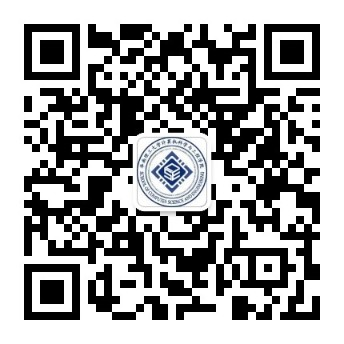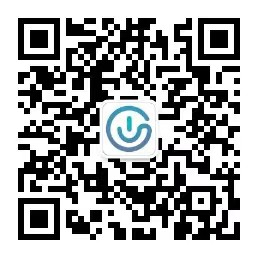《IT技术前沿》教学大纲
课程代码 | 045101451 |
课程名称 | IT技术前沿 |
英文名称 | IT Frontier Technology |
课程类别 | 专业基础课 |
课程性质 | 必修 |
学时 | 总学时:16实验学时:0实习学时:0其他学时:0 |
学分 | 1 |
开课学期 | 第一学期 |
开课单位 | 计算机科学与工程学院 |
适用专业 | 计算机科学与技术、网络工程、信息安全 |
授课语言 | 中文授课 |
先修课程 | 无 |
毕业要求(专业培养能力) | 本课程对学生达到如下毕业要求有如下贡献:
|
课程培养学生的能力(教学目标) | 完成课程后,学生将具备以下能力:
|
课程简介 | “IT前沿技术”是计算机学科各专业的学科基础课,必修课。通过该开放式专题讲座课程,熟悉计算机各个前沿领域的发展方向和动态。课程采用外聘计算机专家学者主题报告的方式,结合其个人研究方向和研究成果,向学生介绍该前沿技术的目前国内外的研究进展情况,研究热点,关键技术等等。 |
教学内容与学时分配 |
6学时 可选报告讲座主题包括:计算机网络、物联网、传感器网络、实时计算机应用、计算机图形学、网络信息安全、数据库、情感计算、数据挖掘、分布式计算、知识工程、计算机视觉、自动推理、机器学习、信息可视化、语义搜索引擎、自然语言处理、机器翻译、搜索引擎等。
6学时 可选报告讲座主题包括:计算理论、算法理论; 软件工程、中间件、智能软件、计算环境;并行计算、网格计算、云计算、普及计算;密码学、信息安全、数据理论;图形图象算法、可视化方法、人工智能等。
可选报告讲座主题包括: 高性能处理机系统结构、多机系统、并行计算与分布式计算系统、计算机系统性能评价、VLSL设计、容错计算技术、计算机接口技术、计算机网络系统与通信系统、移动计算、全球个人计算系统等。 |
实验教学(包括上机学时、实验学时、实践学时) | 无 |
教学方法 | 报告讲座 |
考核方式 | |
教材及参考书 | 讲座资料 |
制定人及制定时间 | 王昊翔,2019年5月19日 |
“IT Frontier Technology” Syllabus
Course Code | 045101451 |
Course Title | IT Frontier Technology |
Course Category | Specialty Basic Course |
Course Nature | Compulsory Course |
Class Hours | 16 teaching sessions |
Credits | 1 |
Semester | The first semester |
Institute | School of Computer Science and Engineering |
Program Oriented | Computer science and technology, network engineering, information security |
Teaching Language | Chinese |
Prerequisites | None |
Student Outcomes (Special Training Ability) |
|
Teaching Objectives |
|
Course Description | "IT Frontier Technology " is a basic and compulsory course for all majors of Computer Science. Its guide course is the introduction to computer science. With the open special lectures, students become familiar with developmental direction and dynamic in each current hot fields of information technology. It employs internal and external experts and scholars in all advanced technology areas of computer science as the form the theme reports for the computer science students, combined with their individual research orientation and achievements, the course introduces students to the current research progress, research hotpots and key technology of the frontier technology at home and abroad. |
Teaching Content and Class Hours Distribution |
Three topics chosen from following areas: Computer Network ,The Internet of things Sensor Networks ,Real-time Computer Application ,Computer Graphics ,Network Information Security ,Database ,Affective Computing ,Data Mining ,Distributed Computing ,Knowledge Engineering ,Computer Vision ,Automated Reasoning ,Machine Learning ,Information Visualization ,Semantic Search Engine ,Natural Language Processing ,Machine Translation ,Search Engine ,etc.
Three topics chosen from following areas: Theory of Computation, Algorithm Theory; Software Engineering, Middleware, Intelligence software, Computing Environment; Parallel Computing, Grid Computing, Cloud Computing, Pervasive Computing; Cryptography, Information Security, Data Theory; Graphic Image Algorithm, Visualization Methods; Artificial Intelligence, etc.
Two topics chosen from following areas: Structure of High-performance Processor System, Multi-machine System, Parallel Computing and Distributed Computing System, Performance Evaluation of Computer Systems, VLSL design, Fault-tolerance Computing Technology, Computer Interface Technology, Computer Network System and Communication System, Mobile Computing, Global Personal Computing System, etc. |
Experimental Teaching | None |
Teaching Method | Lectures and talks |
Examination Method | Report 70%, Participation and attendance 30% |
Teaching Materials and Reference Books | Lecture notes and slides |
Written by and date | Wang Haoxiang, 05/19/2019 |



